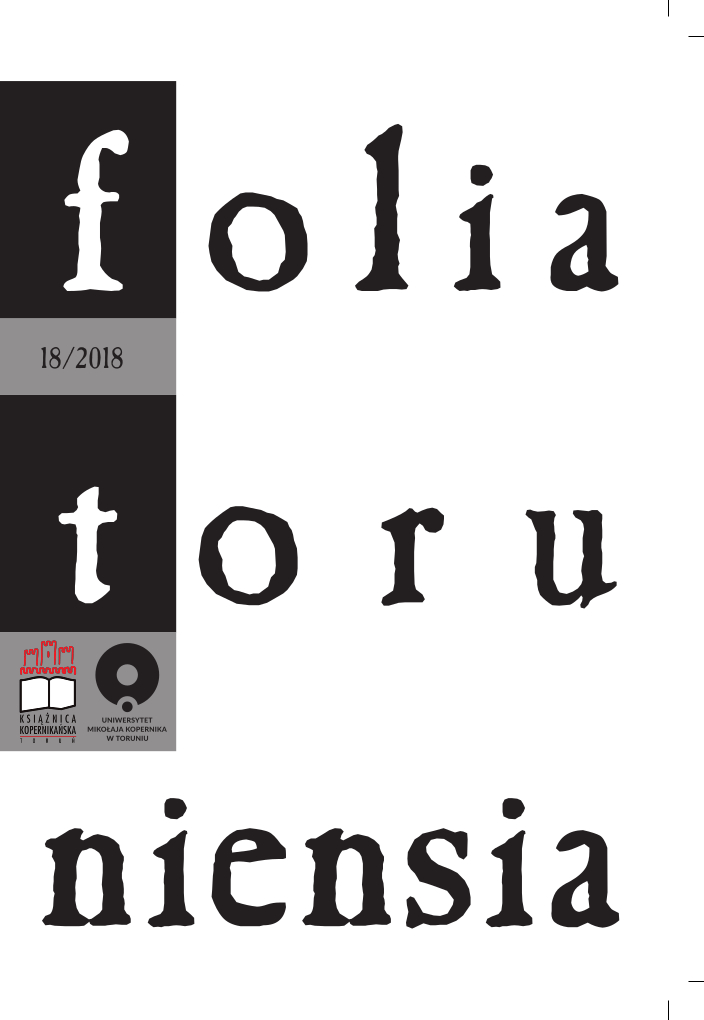The use of surveys and interviews in the field library and information science
DOI:
https://doi.org/10.12775/FT.2018.008Keywords
methodology, research methods, survey, individual interview, group interviewAbstract
Aim: The aim of the article is to look at a selected fragment of the extensive subject matter of the methodology of book and information science – surveys along with individual and group interviews. The article discusses the specific nature of individual tools, and analyzes their use in the discipline in terms of quantity, evaluating their contribution to scientific and qualitative texts. Research method: Considerations were based on a review of literature and own bibliometric studies, including the study of the content of two leading Polish scientific journals (Zagadnienia Informacji Naukowej and Przegląd Biblioteczny) for the years 2010-2015. Results and conclusions: As a result of the conducted analyses, it has not been noticed that these tools are widely used by Polish researchers in the field of information processing, although we are dealing with more frequent use of surveys than interviews.
References
Babbie, Earl. 2008. The Basics of Social Research. Warszawa: Wydawnictwo Naukowe PWN.
Chu, Heting, and Qing Ke. 2017. „Research Methods: What’s in the Name?“ Library and Information Science Research, 39: 284–294. http://dx.doi.org/10.1016/j.lisr.2017.11.001.
Chu, Heting. 2015. „Research Methods in Library and Information Science: A Content Analysis,” Library and Information Science Research 37: 36–41. http://dx.doi.org/10.1016/j.lisr.2014.09.003.
Cibangu, Sylvain K. 2013. „A Memo of Qualitative Research for Information Science: Toward Theory Construction.“ Journal of Documentation 69: 194–213. http://dx.doi.org/10.1108/00220411311300048.
Cisek, Sabina. 2002. Filozoficzne aspekty informacji naukowej. Kraków: Wydawnictwo Uniwersytetu Jagiellońskiego.
Cisek, Sabina. 2013. „Metodologia jakościowa we współczesnej informatologii. Wybrane aspekty.” Przegląd Biblioteczny 81: 299–309.
Dembowska, Maria. 1999. „Informacja Naukowa Jako Dyscyplina Naukowa.” W Bibliologia, Bibliografia, Bibliotekoznawstwo, Informacja naukowa. Wybór prac., ed. by M. Dembowska, 164–178. Warszawa: Biblioteka PAN.
Denzin, Norman K. and Yvonna S. Lincoln, ed. 2014. Metody badań jakościowych. 1. Warszawa: Wydawnictwo Naukowe PWN.
Freitas, Juliana Lazzarotto, Leilah Santiago Bufrem, and Sônia Maria Breda. 2016. „Methodological Choices for Research in Information Science: Contributions to Domain Analysis.” Transinformacao 28: 5–13. http://dx.doi.org/10.1590/231808892016002800001.
Greifeneder, Elke. 2014. „Trends in Information Behaviour Research.” W Proceedings of ISIC, the Information Behaviour Conference, Leeds, 2–5 September, 2014: Part 1 13. http://informationr.net/ir/19-4/isic/isic13.html.
Hider, Philip, and Bob Pymm. 2008. „Empirical Research Methods Reported in High-Profile LIS Journal Literature.“ Library and Information Science Research 30: 108–14. http://dx.doi.org/10.1016/j.lisr.2007.11.007.
Jemielniak, Dariusz, red. 2012. Badania jakościowe. Metody i narzędzia. 2. Warszawa: Wydawnictwo Naukowe PWN.
Migoń, Krzysztof. 2007. „Bibliologia wśród innych nauk. Koncepcje, realizacje, perspektywy.” W Bibliologia: Problemy badawcze nauk humanistycznych, ed. By D. Kuźmina, 13–24. Warszawa: Wydaw. SBP.
Pickard, Alison Jane. 2007. Research Methods in Information. London: Facet.
Powell, Ronald R. 1999. „Recent Trends in Research: A Methodological Essay.” Library & Information Science Research 21: 91–119. http://dx.doi.org/10.1016/S0740-8188(99)80007-3.
Stefaniak, Barbara, Marta Skalska-Zlat, and Sabina Cisek. 2016. ”Metody badań w nauce o informacji.” W Nauka o informacji, ed. by W. Babik, 89–122. Warszawa: Wydawnictwo SBP.
Zhang, Yan, and Barbara M. Wildemuth. 2009. „Unstructured Interviews.“ W Application of Social Science Research Methods to Question in Information and Library Science, 222–231. Westport: Libraries Unlimited.
Downloads
Published
How to Cite
Issue
Section
License
Authors sign the license agreement, where authors have copyright but license exclusive rights in their article to the publisher. In this case authors have a range of rights, including:
- The right to share or reuse their article in the same ways permitted to third parties under the Creative Commons Attribution-NoDerivatives 4.0 (CC BY-ND 4.0) license. Following it, the author can "copy and redistribute the material in any medium or format for any purpose, even commercially. The licensor cannot revoke these freedoms as long as you follow the license terms."
- Authors retain patent, trademark and other intellectual property rights (including research data).
- Authors receive proper attribution and credit for the published work.
![]()
Stats
Number of views and downloads: 555
Number of citations: 0



